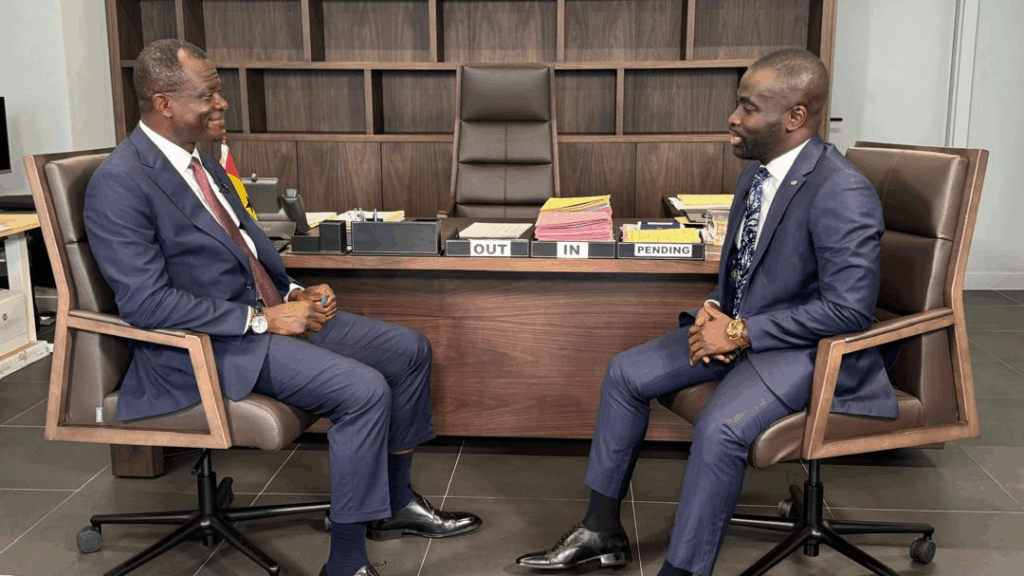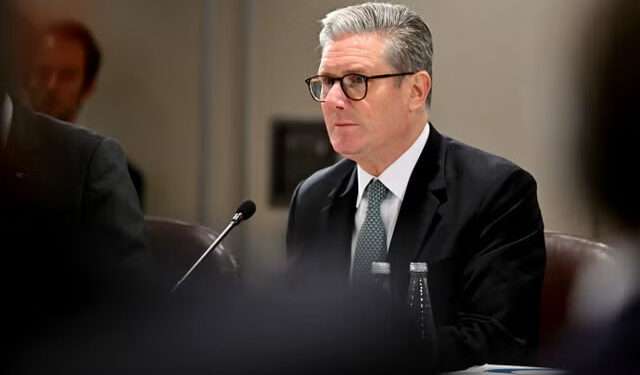The recent rally of the Ghanaian cedi has been attributed to a solid foundation of organically accumulated, non-debt-creating reserves, according to the First Deputy Governor of the Bank of Ghana (BoG), Dr. Zakari Mumuni.
Dispelling speculation about artificial interventions, Dr. Mumuni emphasized that the central bank’s prudent and strategic measures under the International Monetary Fund (IMF) programme are responsible for the local currency’s resilience.
In an interview, Dr. Mumuni dismissed claims that the BoG has been propping up the cedi by drawing heavily on foreign exchange reserves. Instead, he noted that the central bank has found a sustainable and strategic method of meeting market demand without depleting its buffers.
“If we were that heavy in terms of support to the market, we would not be doing well with reserves. But if there is one thing we’ve done well under the IMF programme, it is reserve accumulation.”
Dr. Zakari Mumuni
Describing Ghana’s reserve performance as “very, very impressive,” he highlighted that the country has already surpassed the IMF’s reserve target. “The target was three months of import cover. We’re now at 3.7 months using the IMF’s own metric,” he stated. “If you include petroleum funds, we’re even at 4.7 months.”
Market Confidence Rooted in Organic Growth
According to Dr. Mumuni, the strength of the cedi is derived from trust in the market and transparency in the BoG’s approach.
“Unfortunately, if this were the case [artificial support], the market would have seen through it. Market players are very smart. They wouldn’t trust us, and the rally would be short-lived.”
Dr. Zakari Mumuni

Instead, the deputy governor pointed to the nature of the reserves being accumulated. “These are organically accumulated reserves. At the end of April, we were above $10 billion. And we expect to hit $11 billion by the end of June,” he revealed. “This is way above what’s expected under the IMF programme. That’s what’s giving the market confidence.”
He further noted that this level of reserve build-up reflects a fundamental shift in the management of Ghana’s external sector. “This time is different,” he stressed.
Cedi Rally Driven by Broader Economic Progress
While reserves play a critical role in currency stability, Dr. Mumuni insisted that the cedi rally cannot be attributed to reserves alone.
“You have the IMF Staff Level Agreement, which sent a strong signal to the world. You have inflation coming down from nearly 24% to 21.2%. You also have fiscal consolidation. Government borrowing is slowing.”
Dr. Zakari Mumuni
These developments, according to Dr. Mumuni, have combined to restore investor and market confidence in Ghana’s economy.
Aggressive Liquidity Management in Focus
Another key pillar of the cedi’s stability is the Bank of Ghana’s liquidity management strategy. Dr. Mumuni disclosed that the central bank has sterilised liquidity at a rate three times higher than last year. “That tells you we’re not flooding the market with cedi liquidity, but we’re still meeting forex demand,” he said.
He described the BoG’s actions as a “balanced and effective” approach that carefully supports market needs without compromising financial stability. “We are not intervening recklessly,” he emphasized. “We’re supporting the market strategically while building buffers.”
Dr. Mumuni concluded by affirming the central bank’s commitment to sustaining the current stability. “We are in a much stronger position today. And we’re determined to keep it that way,” he said.
With a combination of prudent reserve management, fiscal discipline, controlled inflation, and effective liquidity strategies, the BoG appears to have ushered in a new era of cedi stability that is grounded not in temporary fixes but in long-term resilience.
READ ALSO: Transport Minister Advised to Engage Transport Operators to Reduce Fares



















